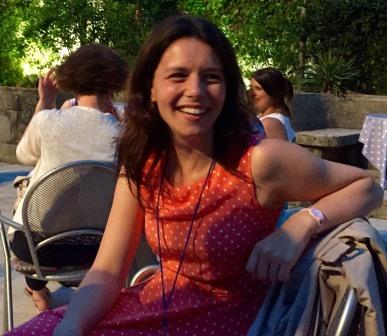Dr Ilaria Pappalepore


I am a reader in tourism and events, and co-convener of the 'Place & Experience' research group in the School of Architecture and Cities. I first joined the University of Westminster in 2006 as a PhD candidate and a guest lecturer at the Centre for Tourism and Events, and later (2010-11) I became an associate researcher with the department of Urban Planning and Regeneration. Between September 2011 and June 2014 I was senior lecturer in Tourism and course leader of the BA Tourism Management at Anglia Ruskin University in Cambridge. Prior to joining the University of Westminster and Anglia Ruskin University I worked at the Lille Development Agency (France), department of Culture and European Relations.
I welcome PhD applications from students who have interests in tourism, events and leisure; particularly urban and cultural tourism, tourism/events and urban regeneration, creative businesses and tourism/events, new tourism areas in cities, Olympic legacies, and cultural events.
My research focuses on two key areas: 1) tourism in cities, particularly the development of new tourism areas in peripheral areas and the relationship between creative industries and tourism; and 2) Major events, such as the Olympic Games, and their impacts on cultural and creative businesses, and on tourism in cities. My doctoral research (completed in 2010) looked at the role played by creative industry clusters in the development of tourism in non-central urban areas. More recently, I have been doing research on the 2024 Olympic and Paralympic Games in Paris, working with an international team led by Dr Michael Duignan from the University of Central Florida. Previously, in 2020/21, I led a project called 'Metropolitan Tourism in the Wake of Covid-19: Business as usual or new business model?' with colleagues from the University of Westminster and the Panthéon-Sorbonne’s Institute for Research and High Studies on Tourism (Paris). Other research work I have done include research on the role of the London 2012 Olympic Games and cultural programme in fostering local creativity, funded by a grant of the International Olympic Committee (IOC). Over the years I have also done research on the Olympic and Paralympic Games in Turin (Italy), Rio de Janeiro (Brazil), and Tokyo (Japan).
Previously, in 2010-11, I worked within a team of five led by Prof. Marion Roberts (from the University of Westminster) on a research on the influence of location-based factors in youth leisure behaviours, with a focus on alcohol consumption. This study was funded by the Joseph Rowntree Foundation.